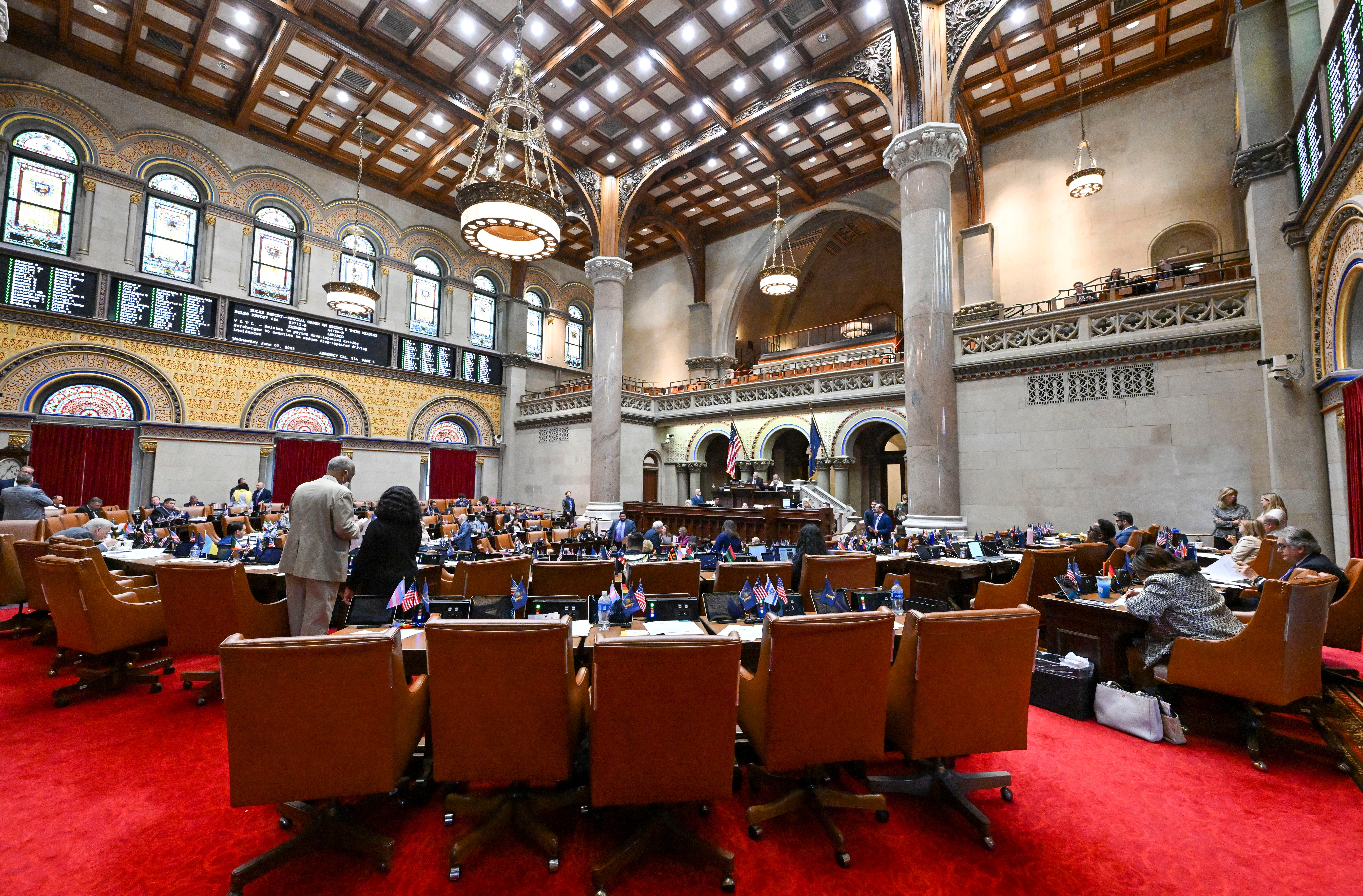New York lawmakers pass bill to consider slavery reparations
Commission to be created to examine state’s historic support for institution of slavery and address persistent economic, political and educational disparities experienced by the Black community today

The New York State Legislature has passed a bill clearing the way for the creation of a commission to consider the enduring legacy of slavery on the Black community, with a view to potentially pay reparations.
The bill passed through the Assembly Chamber in Albany after three hours of debate on Thursday, swiftly followed by the Senate a matter of hours later.
It now makes its way to the desk of New York Governor Kathy Hochul for her signature.
New York is following the example of California, which became the first state to form a reparations task force in 2020.
That group recommended that California issue a formal apology for the lasting legacy of racism and discriminatory policies – from over-policing to mass incarceration and redlining – and the creation of an agency to provide a wide range of services for Black residents.
It stopped short of recommending the precise value of reparations payments that might be made to citizens, however, although it did hear analysis from economists who suggested that the state’s Black residents could be owed as much as $800bn in compensation, a preliminary estimate more than 2.5 times larger than California’s annual budget of $300bn.
The commission created by New York’s legislation would be tasked with examining the extent to which the federal and state government had supported the institution of slavery and address persistent economic, political and educational disparities experienced by the Black community in the state today.
It would be required to deliver a report one year on from its first meeting and any recommendations it might make regarding compensation payments would be non-binding, with the Legislature not compelled to take them to a vote.
The bill takes as its starting point the arrival of the first enslaved Africans arriving on the southern tip of Manhattan Island, then a Dutch settlement, in the 1620s, noting that they were thereafter deployed in helping build the infrastructure of what became New York City.
The state Legislature finally enacted a statute in 1827 to free New York’s slaves, although it was not implemented until 1837.
Prior to Thursday’s floor debate, New York Assembly speaker Carl Heastie, the first Black person to hold that position, took a moment to acknowledge how “historic” the legislation was and the gravity of the subject up for consideration.
Making the case for the bill, assemblywoman Michaelle Solages said: “We want to make sure we are looking at slavery and its legacies.
“This is about beginning the process of healing our communities. There still is generational trauma that people are experiencing. This is just one step forward.”
On the other side of the debate and voicing opposition was assemblyman Andy Gooddell, who said: “I’m concerned we’re opening a door that was closed in New York State almost 200 years ago.”
Mr Gooddell added that he believed in pursuing contemporary equal opportunities measures and said he preferred to “continue on that path rather than focus on reparations”.
Following its passage, Speaker Heasie, Senate majority leader Andrea Stewart-Cousins and Governor Hochul will each appoint three qualified members to the commission.
Other state legislatures that have considered examining the complex questions of reparations include New Jersey and Vermont but neither has yet passed legislation.
Nor, for that matter, has Congress, although the creation of an equivalent commission in DC has long been mooted.
A Chicago suburb in Evanston, Illinois, became the first city to effectively make reparations available to Black residents through a $10 million housing project in 2021.
While few would argue that the idea of paying compensation is well-intentioned, some critics have dismissed it as misguided.
William Darity, a professor of public policy and African and African American Studies at Duke University, has said that even calling proposed payouts reparations is “presumptuous” because it is virtually impossible for states to actually afford the huge costs involved.
Professor Darity believes only the federal government has the capacity to realise the money required.
“My deeper fear with all of these piecemeal projects is that they actually will become a block against federal action because there will be a number of people who will say there’s no need for a federal program,” he said.
“If you end up settling for state and local initiatives, you settle for much less than what is owed.”
Additional reporting by agencies
Subscribe to Independent Premium to bookmark this article
Want to bookmark your favourite articles and stories to read or reference later? Start your Independent Premium subscription today.
Join our commenting forum
Join thought-provoking conversations, follow other Independent readers and see their replies